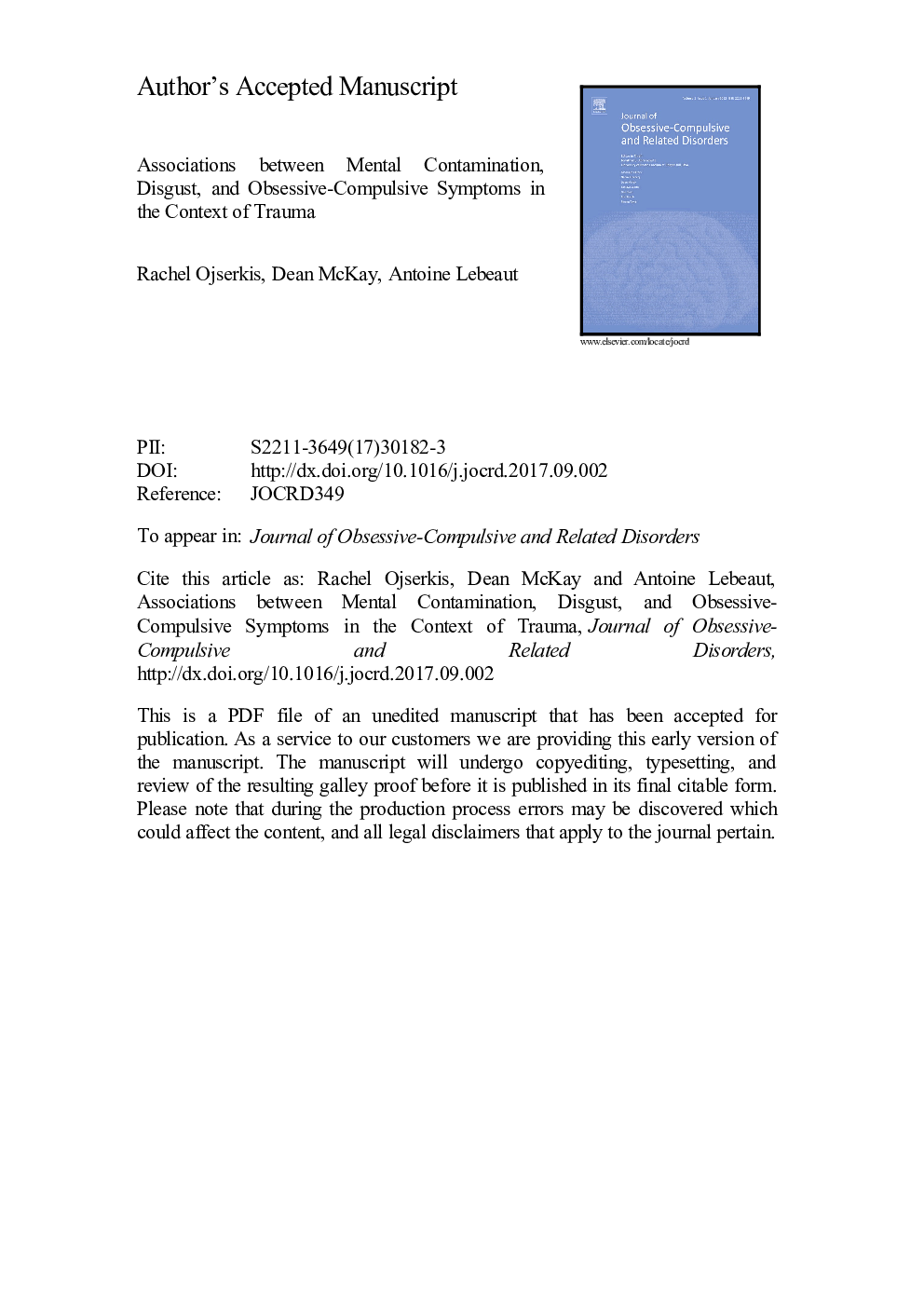| Article ID | Journal | Published Year | Pages | File Type |
|---|---|---|---|---|
| 7269003 | Journal of Obsessive-Compulsive and Related Disorders | 2018 | 30 Pages |
Abstract
Mental contamination (MC), feeling dirty in the absence of a physical contaminant, has been linked to the basic emotion of disgust. Both MC and disgust have been associated with posttraumatic stress (PTS) and obsessive-compulsive (OC) symptoms occurring separately as well as together. However, there is no consensus on the specific ways in which these constructs interact with each other, PTS, or OC symptoms. Thus, this study sought to specify the associations between self-reported MC, disgust constructs, and OC symptoms amongst 250 undergraduates endorsing lifetime traumatic events. Results showed MC to significantly predict OC symptom severity above and beyond the effects of disgust propensity (DP) and disgust sensitivity (DS), controlling for gender, general negative affect, and PTS symptom severity, in both the large trauma-exposed sample and a subgroup (n = 49) endorsing PTS symptoms approximating DSM-5 criteria. Further, DS significantly moderated the strength of the association between DP and MC, controlling for gender, negative affect, PTS symptoms, and OC symptoms, such that higher levels of DS strengthened the conditional effects of DP on MC. These findings suggest that MC predicts OC symptom severity amongst trauma-exposed individuals, and that the interaction of disgust constructs contributes to MC in this population.
Related Topics
Health Sciences
Medicine and Dentistry
Psychiatry and Mental Health
Authors
Rachel Ojserkis, Dean McKay, Antoine Lebeaut,
